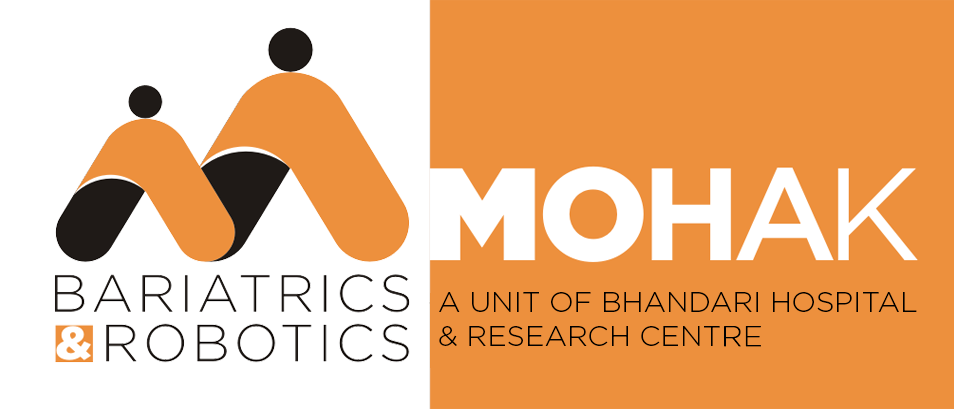How obesity increases the risk of liver cancer?
Obesity is a pandemic that’s affecting the entire globe. It is also recognized as one of the culprits that lead to liver cancer. While obesity might not always directly lead to liver cancer, it causes other comorbidities such as increased inflammation, type 2 diabetes, increased insulin resistance in the body that increases the risk of cancers such as that of the liver.
Research shows that for every 5kg/m2 increase in BMI, there is a 38 and 25% increase in liver cancer risk in men and women, respectively. Imagine the risk factors associated with BMI that falls under the obese category- that is 30 and 25 with pre-existing health conditions such as type 2 diabetes. Apart from this, waist circumference also increased the risk, although it didn’t account for a lot. At the same time, type2 diabetes accounted for more than two and a half times the risk after considering other factors such as alcohol consumption and smoking.
Liver cancer is also emerging as the fastest growing cancer in India, with 30,000-50,000 new cases reported yearly. Obesity and Liver Cancer being closely associated. The obesity cases in the country are rising and can be as high as 36.3%.
It is essential to understand how to prevent liver cancer and curb obesity since – liver cancer has a poor prognosis. Even when It is detected in the early stages. So, what happens to the liver when a person is obese? Simply the association between obesity and liver cancer is that- expert believe fat tissues in the liver produce inflammation, leading to tissue alteration, which may develop into fibrosis and cirrhosis and an increased risk of insulin resistance, which can eventually add up to liver cancer.
Obesity, Inflammation and Liver Cancer
Visceral fat cells are large, and these fat cells don’t have much room for oxygen. And this low oxygen environment causes inflammation. Inflammation is the body’s natural response to a disease or injury. It aids recovery around the damaged part. But visceral fats can lead to prolonged unrequired inflammation in the body, which increases your risk of cancer.
Obesity, Inflammation and Insulin
Obesity leading to inflammation can disturb the body’s reaction to insulin. Where the body stops appropriately responding to insulin, causing insulin resistance. To balance this resistance, the body starts producing more insulin triggering a more significant cell production, leading to liver cancer.
Obesity and DNA Damage
Although researchers see for a more direct link between obesity and liver cancer, they say that having access to body fats leads to DNA damage which causes abnormal cell multiplication. Prolonged and chronic inflammation due to obesity and oxidative stress due to obesity can damage DNA cells, creating issues in their healing mechanism.
Such damage then accumulating can lead to increased mutation and altered gene expression, becoming a cause of cancerous tumours.
Treatment for Obesity
While adopting a healthy lifestyle is one way to prevent excess weight gain. Still, many times obesity can be due to varied reason- and even after repeated and persistent lifestyle changes, the body can remain unaffected and obese. In such a scenario, the solution to curb obesity is bariatric surgery along with healthy lifestyle changes.
Bariatric surgery is an innovation in robotics and bariatrics that alters the digestive system to promote weight loss. A BMI above 30 and BMI 25 with the prevalence of type 2 diabetes are considered conditions of obesity that potentially requires bariatric surgery as a long-term solution in both adults and children.
Bariatric surgery restricts the amount of food the stomach can hold by different bariatric procedures. This causes malabsorption of nutrients or both malabsorption and gastric restriction. Most of the procedures are done by minimally invasive technique (laparoscopic procedures).
In simple words, bariatric surgery is done to shed off excess weight baggage from the body and to reduce the risk of potential obesity-associated life-threatening diseases. The most common bariatric surgery procedures include- sleeve gastrectomy, gastric bypass, adjustable gastric band, duodenal switch and biliopancreatic diversion.
Advantages:
- It very safe and requires making a few positive lifestyle changes
- Restricts the amount of food consumption and fosters appetite control
- Helps in significant long-term weight loss (about 60 to 80 percent excessive weight shed)
- Reduces the risk of cell multiplication that can be cancerous.
- Complete remission of type 2 diabetes in most cases:
It leads to complete elimination of type 2 diabetes in most patients – making them insulin-free and other associated medication for at least three years. - Improved cardiovascular health
It reduces the risks of cardiovascular disorders such as stroke, coronary heart disease and peripheral heart disease. - Relief from depression
Obesity comes with low self-esteem, negative body image and social stigma. Therefore, losing weight positively affects emotional weight. Patients have seen around a 16.5% decrease in depression 6-12 months post-surgery. - Eliminates sleep apnea
Around 85% of patients have experienced complete remission within a year of the surgery. - Relief from joint pain due to reduced pressure on the joints, letting people enjoy more mobility.
- Improves fertility in both men and women
It reduced PCOS condition, fosters a regular menstrual cycle, ovulation, and reduced the risk of miscarriages during childbearing years. In males, it increases sperm quality and motility- essential factors for fertility. - Reduces the risk of other obesity-related comorbidities
If you face obesity issues or are asthmatic and obese, this is the right time to take the first step towards weight loss. You deserve a more agile, healthy, and fulfilling lifestyle- one that’s free of any such crisis and risk of cancer. To know more, call us on- 6232012342 and meet an expert now!
